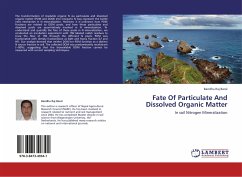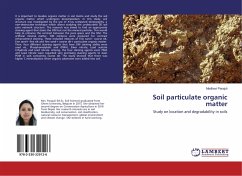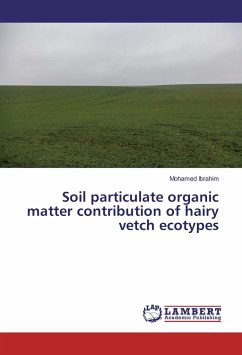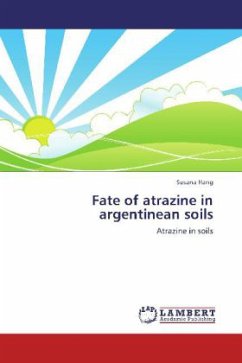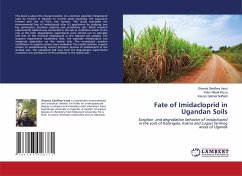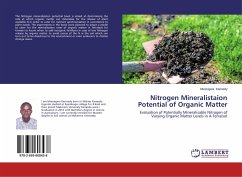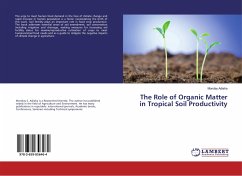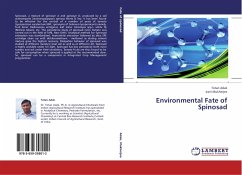The transformation of insoluble organic N via particulate and dissolved organic matter (POM and DOM) into inorganic N may represent the bottle neck mechanism in N mineralization. However, it is unknown how POM fractions are related to DOM pools, and how these particulate and dissolved pools are quantitatively involved in N mineralization. To understand and quantify the fate of these pools in N mineralization, we conducted an incubation experiment with 15N labeled radish residues to trace the flow of 15N through the different N pools. POM was fractionated with density fractionation as light and heavy fraction (LF and HF). Our analysis showed that neither DON nor POM function as a distinct N source fraction in soil. The collected DOM was predominantly recalcitrant (~80%), suggesting that the bioavailable DOM fraction cannot be measured with current sampling techniques.
Bitte wählen Sie Ihr Anliegen aus.
Rechnungen
Retourenschein anfordern
Bestellstatus
Storno

